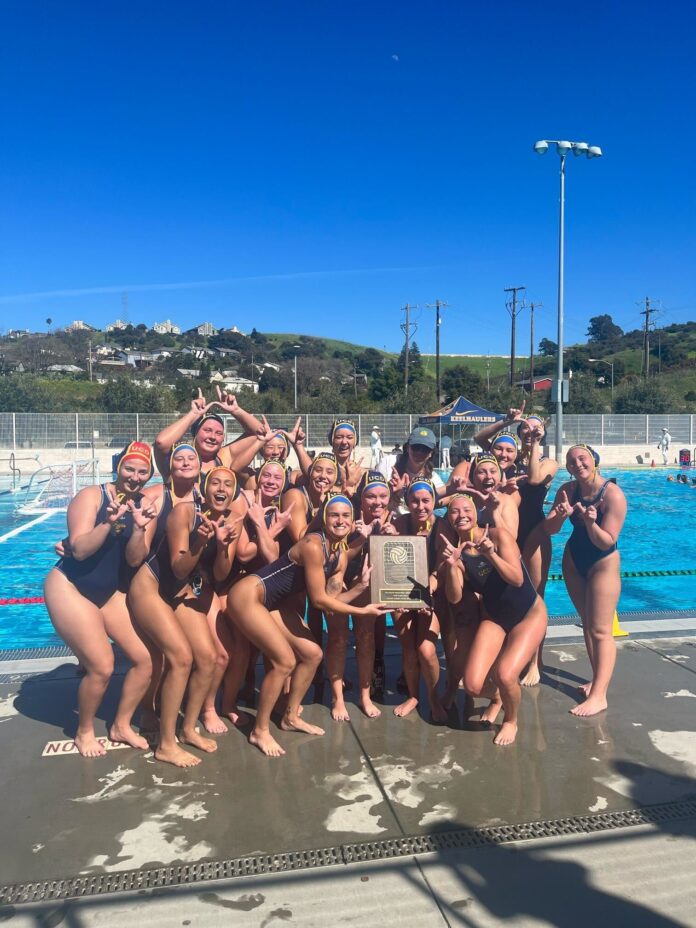Club sports provide opportunities for athletes to continue their sport in college
By EMME DUNNING — features@theaggie.org
Sports are an integral part of the high school experience for many teenagers. They provide a sense of structure, a way to make friends and a chance to play at a highly competitive level. After graduating high school, however, opportunities to continue playing sports dwindle greatly.
NCAA-level competitions are highly selective and extremely time-consuming, making it difficult for most high school athletes to pursue. While intramural sports are a great way to continue playing sports in a low-stakes environment, they often lack the highly competitive aspect that many athletes crave.
The solution? UC Davis club sports. As one of the programs of campus recreation, club sports provide students the opportunity to join teams for over 40 sports, ranging from basketball to bowling. Athletes attend regular practices, compete in an intercollegiate setting and train in their off-seasons, in many ways mimicking the intensity and structure of varsity high school competition. In addition, these teams have the opportunity to compete for spots to play in competitions beyond their own league in tournaments taking place regionally and even nationally.
The UC Davis women’s club water polo team embodies this spirit of competition. Their A team has gone undefeated in their league, boasting an 11-0 record that has earned them a spot in the 2024 Women’s National Collegiate Club Championship held in early May at Texas A&M University. The Collegiate Water Polo Association-sanctioned event brings together the top 16 teams from divisions across the country to compete in the highest level of play available to club water polo athletes.
The road to nationals has not been easy for the Aggies, but instead is the result of hard work against fierce competition. Although the official women’s water polo season begins in January, their work begins far earlier. Open practices begin in October, helping athletes practice fundamentals, develop plays and begin to connect as a coherent team.
At the end of the fall quarter, “no-cut tryouts” are held to sort athletes into A, B and C teams, each with their own distinct skill and experience levels. To ensure they’re prepared for the challenges they face in league competition each year, the teams hold practice multiple times each week, with A team practicing up to four times per week during the regular season.
Head coach of the Club A team, Annika Krueger, has helped to cultivate this excellence. A second-year graduate student at UC Davis studying environmental policy and management, Krueger decided to coach after playing on the A team in her first year at UC Davis as well as playing Division 3 water polo at her undergraduate university.
“I’ve been playing water polo for 10 years,” Krueger said, reflecting on her decision to coach this season. “I was just interested in seeing a different side of it and thinking a lot more about the strategy and making plays. I’ve been through a lot of different coaches and coaching styles so I feel like I’ve figured out what I like and what I didn’t like, and wanted to be able to try out some of those things that I’d learned.”
A key part of Krueger’s philosophy in coaching is cultivating the adaptability of her players.
“Everyone is able to play almost every position,” Krueger said. “It makes it harder for other teams to be able to anticipate who’s gonna be a shooter or who’s gonna be more of a threat, because everyone is able to take great shots, drive into the middle, post up and take shots from there.”
This coaching style, as well as a commitment to excellence by the players and coaches, has been instrumental in getting this year’s team to nationals. Callie McClain, a fourth-year civil engineering major, joined the club A team this year and has already taken note of the special culture at UC Davis.
“We have a good group dynamic, and I think that when we’re in the pool, that really translates over,” McClain said. “We all play our part. Everyone has a good shot. Everyone can shoot from the outside when they need to, and [they] can go in to set when they need to.”
Beyond being able to compete at a high level of water polo in college, McClain also believes that being involved in club water polo has enhanced her overall educational experience at UC Davis.
“Being in a sport and being in a community helps you stay on top of your tasks,” McClain said. “It gives you a community where you can say, ‘Hey I’m going to the library, anyone wanna join me?’”
Katie Jennings, a second-year history and political science double major who has played on the team for all of her time at UC Davis so far, has also reaped its benefits in her social life.
“It’s a really good group of people,” Jennings said, adding that she has met a lot of her friends from the team.
The water polo team is close-knit, connecting not only in the pool but also in other aspects of their lives. From hanging out at practice to studying together in the library to socializing on the weekends, the UC Davis women’s water polo team has formed a tight bond.
The unique culture of the team has evidently paid off in many aspects of the athletes’ lives, providing social, academic and health benefits. As the UC Davis women’s water polo team prepares for their fast-approaching national championship tournament, they take these important principles of teamwork and community with them.
Written by: Emme Dunning — features@theaggie.org





